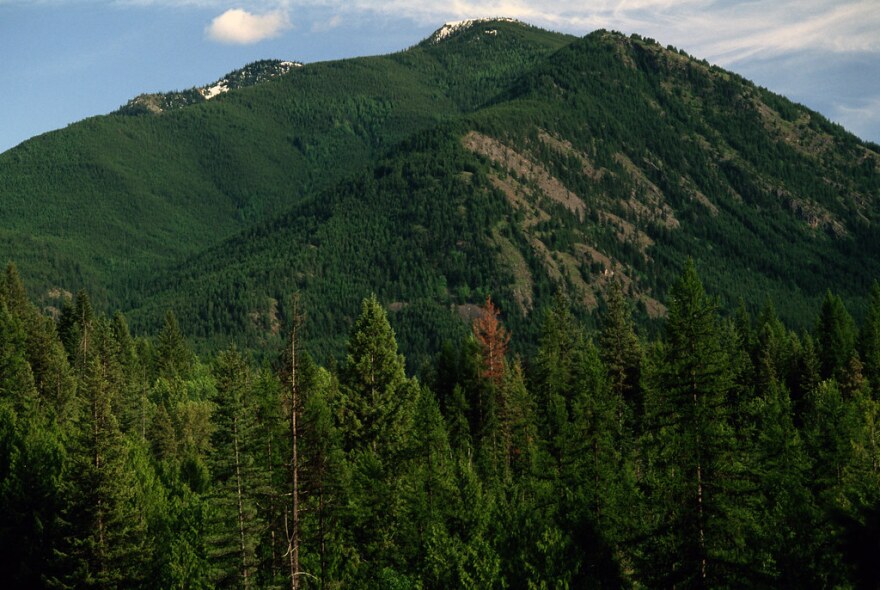People in northeast Washington are weighing in on a proposal to add new wilderness areas to the Colville National Forest. Some support the idea, others are wary.
The proposal is part of the management plan for the Colville National Forest that was released two years ago. It calls for designating 61 thousand acres as wilderness. That means it would be essentially off limits to motorized travel, with a few exceptions.
That concerns Merrill Ott, a former Stevens County commissioner who represents the Tri-County Motorized Recreation Association.
Merrill Ott: “Our major concern as enthusiasts is to see some areas of the forest that would see better management before we get into exposing ourselves to fully supporting wilderness, when, in fact, all we want to support is proper management. At this point we feel it's premature to go to wilderness.”
The Colville, currently, has one federally designated wilderness area – the 41 thousand-acre Salmo-Priest – which represents about 3% of the forest. The new proposals would add Bald Snow in the Kettle Range, the Abercrombie Hook Nose west of the Pend Oreille River, and some smaller areas adjacent to Salmo-Priest.
Other concerns come from organizations that rely on the national forest to graze their animals. Scott Neilson from the Stevens County Cattleman's Association's says he thinks the wilderness designation would take away local decision making on anything related to continued grazing in those areas.
Scott Neilson: “The environmental community will tell you there can be waivers made and there can be, but I will tell you that doesn't usually happen. It's made much more difficult. Many of the decisions, it takes it out of the hands of the local managers, and you have to get waivers and things like that from the regional office.”
Whereas in years past, a proposal like this would have little or no support locally. But this version has support from the Northeast Washington Forestry Coalition, a diverse group that includes environmental, industrial and recreation interests.
The group’s vice president, Mike Petersen, says while motorized uses are mostly prohibited in such areas, there is enough wiggle room that those who graze animals could continue to use that land.
Mike Petersen: “Really what those guidelines say if they get instituted into a bill is you can use whatever tools you were using before it became wilderness, so if you had to replace a water tank, for example, you could use mechanized equipment to take that up there. You just couldn't be up there every day on your ATV. And so I think assurances to the ranchers that they won’t get forced out is the key in any kind of wilderness bill language.”
The proposal would have to be approved by Congress.



